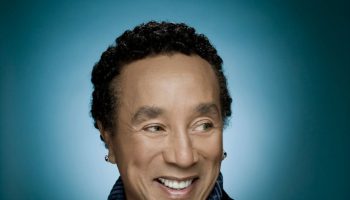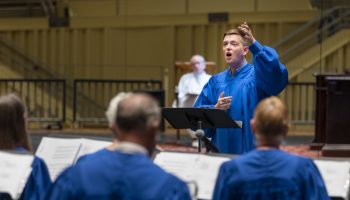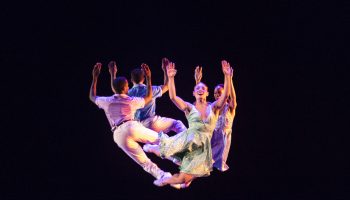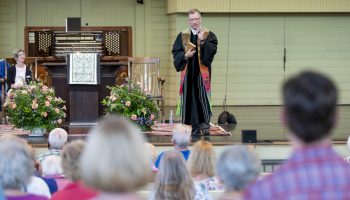Every film begins the same way — as written word on a computer screen or pages of a notebook. Today, two authors who have helped transform the written word into some of the most impactful documentary films of the past decades will discuss the process this involves.
Continuing a conversation on documentary filmmaking begun on Monday, Aug. 20, Dayton Duncan and Geoffrey Ward will discuss in more detail their own personal methods as storytellers. This lecture, part of Week Nine’s theme, “Documentary Film as Facilitator: Storytelling, Influence and Civil Discourse,” is at 10:45 a.m. Tuesday, Aug. 21, in the Amphitheater. The two will discuss their practices, lessons learned working in the field and their hopes for future endeavors.
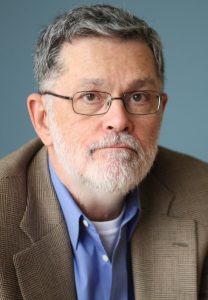
Ward, an author and scriptwriter, spent years working as an editor for American Heritage magazine, which centers around American history. Ken Burns approached Ward in the 1980s for help writing a film focused on Huey Long, and Ward said he’s been at it ever since.
“I enjoyed every film I’ve worked on with Ken,” Ward said. “We seem to agree on how you tell a story.”
Ward has written companion volumes to eight of the films he’s collaborated with Burns, in addition to his own award-winning books. Ward said writing scripts and writing books require slightly “different approaches.”
“I just love the fact that so many people get reasonably serious history thanks to Ken’s work and the work the team does,” Ward said. “We’ve really reached an awful lot of people with America’s story and, sadly, there’s really too little history taught in schools.”
Ward described the work he’s been able to do as the “dream of his life”: reaching so many people with America’s history. The hope, Ward said, is that the films make people want to go out and find more information about the subjects on their own.
“It’s been beyond my imagining that we’d reach so many people with these stories,” Ward said.
The first film Ward and Duncan worked on together was “The West,” followed by a film centered around Mark Twain. Duncan, a documentary filmmaker and author, said topics such as “The West,” which he had explored on his own, piqued the interest of Burns and his team.
“With ‘The West,’ (Ward) and I collaborated as co-writers of that one, and I learned an awful lot by working with Geoff,” Duncan said. “He’s a great writer and a great scriptwriter, but also a great biography writer in his own right.”
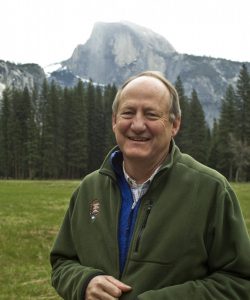
Duncan spent a large part of his career working in politics, serving as chief of staff for the governor of New Hampshire. He said this experience catalyzed his love for American history.
“That’s really what sparked my interest in history and magnified my own passion for the great American experiment and democracy that’s been going on on this continent for almost 200-something years,” Duncan said.
Duncan said the decision-making that happens in the government, which impacts both the present and future, is truly what history is to him.
“It’s imperfect people doing the best they can with the hope of what tomorrow might bring,” Duncan said. “And sometimes that works and sometimes that doesn’t. What we call history is really just the story of people, with their own strengths and failings, that might be considered important enough to be considered history. That really rearranged what I thought of what history is.”
Duncan said film offers a chance to build upon the written word’s role in sharing history,
“Working with an extremely talented group of editors, it can turn into something that comes alive through the images and the music and the pacing and all the multiple things that go into filmmaking,” Duncan said.
“When it’s done right, it’s more than addition — it’s multiplication.”
-Dayton Duncan, documentary filmmaker, author
Duncan said he is excited for the opportunity to share his process and hear a little more about Ward’s process as a writer as well.
“I’m interested to see what he has to say,” Duncan said. “Every writer goes about it a little differently. If I can get some secrets from him, I’ll appreciate it — what he shares with me and a couple thousand other people.”
In his work studying different subjects, including explorers Lewis and Clark, Duncan said it’s become clear that no hero is perfect, no villain is completely flawed.
“If only perfect people can be heroes, there can’t be any heroes because there aren’t any perfect people,” Duncan said. “If an imperfect person is capable of doing something heroic or important, that offers hope to all of us that we can do something in our own lives that can have impact and some permanence. And that keeps me going.”

